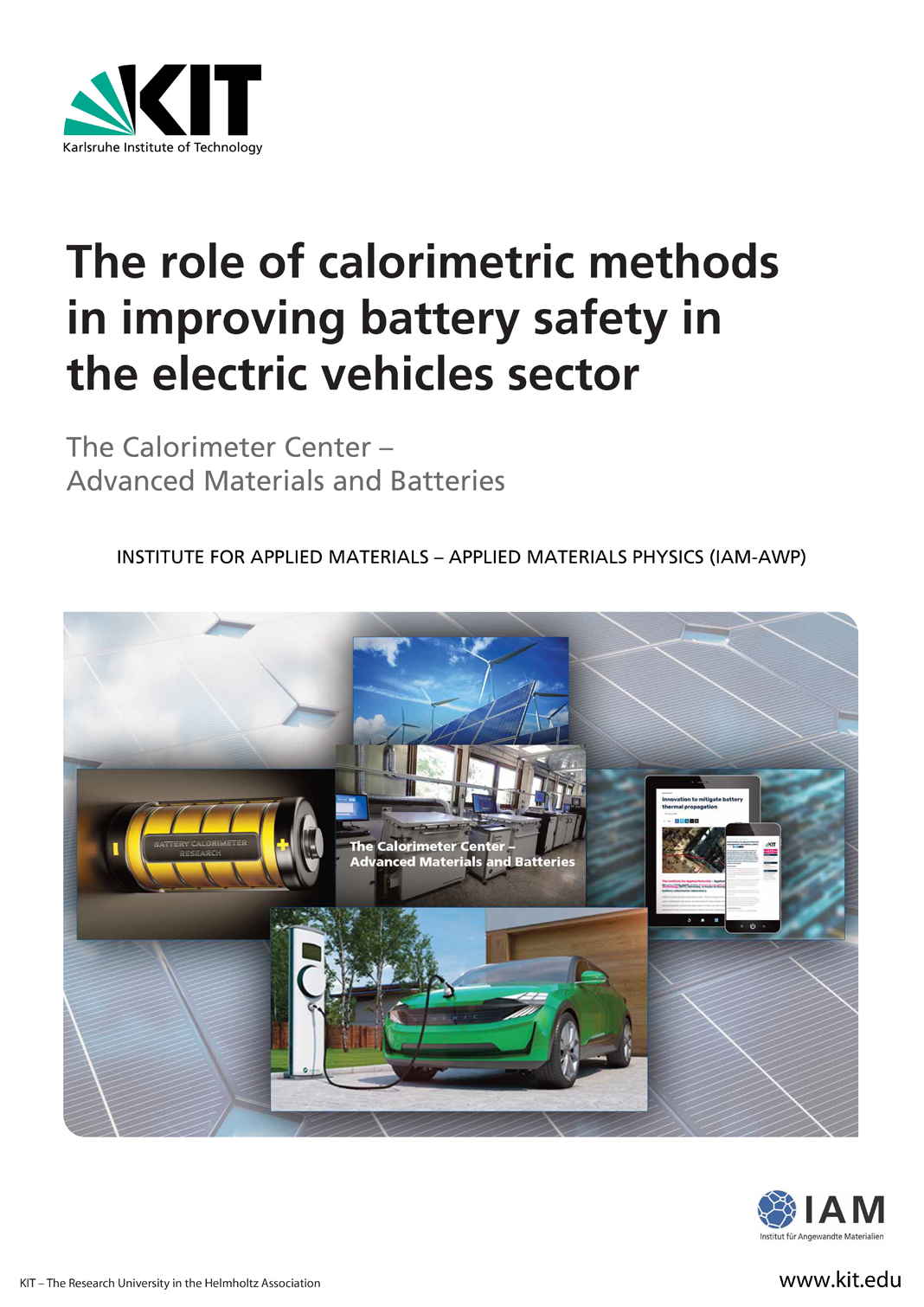In the latest eBook from the Karlsruhe Institute of Technology (KIT), Dr Carlos Ziebert, Head of the IAM-AWP Calorimeter Center discusses the role of calorimetry in improving electric vehicle battery safety.
The European Commission’s ‘Sustainable and Smart Mobility Strategy‘ aims to reduce carbon emissions by 90% by 2050. A key pillar of the strategy is the introduction of at least 30 million zero-emission electric cars, powered by large lithium-ion batteries, onto Europe’s roads, and improving electric vehicle battery safety has an important role to play in meeting this target.
The eBook explores the diverse and complex causes and effects of thermal runaway (an uncontrollable temperature increase) in lithium-ion batteries and outlines how battery calorimetry – the process of measuring heat data during chemical reactions – is being used to test optimum battery performance and safety.
Dr Ziebert discusses how the temperature, heat and internal pressure evolution of batteries is being studied, while operating cells under normal and abuse conditions, at the Institute of Applied Materials – Applied Materials Physics’ (IAM-AWP) Battery Calorimeter Center.
The IAM-AWP Calorimeter Center, established in 2011, is one of the few institutions in the world to investigate both the thermodynamics and safety of batteries and their materials.
It operates Europe’s largest Battery Calorimeter Laboratory, which provides six Accelerating Rate Calorimeters (ARCs) ranging from the size of a coin to a 40 cm x 30cm automotive pouch or prismatic format with capacities of up to 150 Ah.
These robust battery calorimeters allow the evaluation of thermodynamic, thermal and safety data for lithium-ion batteries under quasiadiabatic and isoperibolic environments for normal and thermal, electrical, and mechanical abuse conditions.
This eBook also includes:
- An overview of the safety issues regarding lithium-ion batteries
- The benefits of battery calorimetry
- An in-depth look at the safety tests performed in the ARCs


